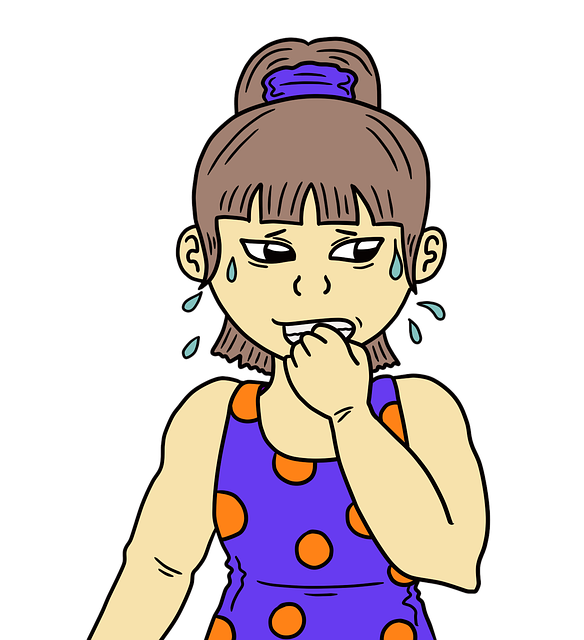Adolescent anxiety signs include persistent fear, stress, physical symptoms, and behavioral changes. Recognizing these is crucial as many teens struggle silently. Mental health therapy for adolescents offers specialized coping strategies and addresses root causes through evidence-based methods like CBT. Early intervention enhances well-being and prevents severe mental health issues later in life. Tailored, experienced therapists create safe spaces, encouraging open communication and building trust.
Adolescent anxiety is a growing concern, but knowing when to seek professional help can make all the difference. This comprehensive guide explores recognizing the symptoms of teenage anxiety and understanding when it’s time to take action. We delve into the benefits of mental health therapy, offering insights on how specialized support can foster resilience and well-being. Learn about finding suitable professional resources for adolescents, ensuring they receive the effective care they need to navigate this challenging phase.
Recognizing Adolescent Anxiety Symptoms
Adolescent anxiety can manifest in various ways, and it’s crucial for parents and caregivers to be vigilant in recognizing these symptoms. Beyond typical shyness or occasional worry, persistent feelings of fear, stress, or unease that interfere with daily activities could indicate an underlying issue. Youths might exhibit physical manifestations such as excessive sweating, rapid heartbeat, or sleep disturbances. They may also show behavioral changes, like avoiding social situations, refusing to attend school, or engaging in self-harming behaviors.
Paying attention to these signs is essential because adolescent anxiety often goes unnoticed due to its subtle nature. Many young people struggle silently, and providing a supportive environment where they feel comfortable discussing their feelings can be instrumental. If concerns persist, considering mental health therapy for adolescents is a proactive step. This specialized care equips them with coping strategies and helps address the root causes of anxiety disorders.
Understanding When It's Time to Act
Recognizing the signs and understanding when to take action is crucial when it comes to adolescent anxiety. While occasional worry and fear are normal parts of growing up, persistent and intense feelings that interfere with daily life indicate a potential issue. If an adolescent’s anxiety is severe, frequent, and impacts their ability to attend school, maintain social relationships, or engage in activities they once enjoyed, it’s time to consider professional help. Mental health therapy for adolescents can provide much-needed support and strategies to manage these feelings effectively.
Seeking guidance from a mental health professional is essential when anxiety symptoms become debilitating or if there are concerns about co-occurring disorders, such as depression or eating issues. Therapists specializing in adolescent mental health can offer evidence-based treatments tailored to the individual’s needs, helping them develop coping mechanisms and improve overall well-being. Early intervention through mental health therapy for adolescents can be transformative, fostering resilience and a healthier outlook on life.
Benefits of Mental Health Therapy for Teens
Mental health therapy for adolescents offers a safe and supportive space tailored to the unique needs and challenges faced by teens. Through evidence-based approaches such as cognitive behavioural therapy (CBT), teenagers can learn effective coping strategies to manage anxiety, improve their emotional regulation skills, and develop healthier thought patterns. This early intervention can be instrumental in preventing more severe mental health issues from developing later in life.
In addition to direct therapy, involving parents or caregivers in the process can further enhance its benefits. Family therapy sessions provide an opportunity for open communication, improved understanding, and stronger support systems. By fostering a collaborative environment, mental health therapists can help adolescents navigate their anxiety while strengthening relationships and promoting overall well-being.
Finding Suitable Professional Support
When seeking professional help for adolescent anxiety, finding suitable support is a crucial step. Mental health therapy for adolescents should ideally be tailored to their unique needs and developmental stage. Therapists specializing in childhood and adolescence understand the complexities of this period, offering evidence-based approaches such as cognitive behavioral therapy (CBT) which has proven effective in managing anxiety disorders.
Additionally, consider therapists who employ creative techniques like art or music therapy, which can be particularly engaging for teens. The right professional will create a safe, non-judgmental space, fostering open communication and building trust. Look for individuals who are trained in adolescent development and have experience working with this age group to ensure a supportive and effective therapeutic journey.
Adolescent anxiety can significantly impact a young person’s life, but recognizing when to seek professional help is crucial. By understanding the symptoms and knowing when to act, parents and caregivers can ensure their teens receive the necessary support. Mental health therapy for adolescents has proven to be highly effective in managing anxiety, offering tailored strategies for coping with stress and improving overall well-being. With the right professional support, teens can develop resilience and learn healthy ways to navigate life’s challenges, fostering a brighter and more secure future.
